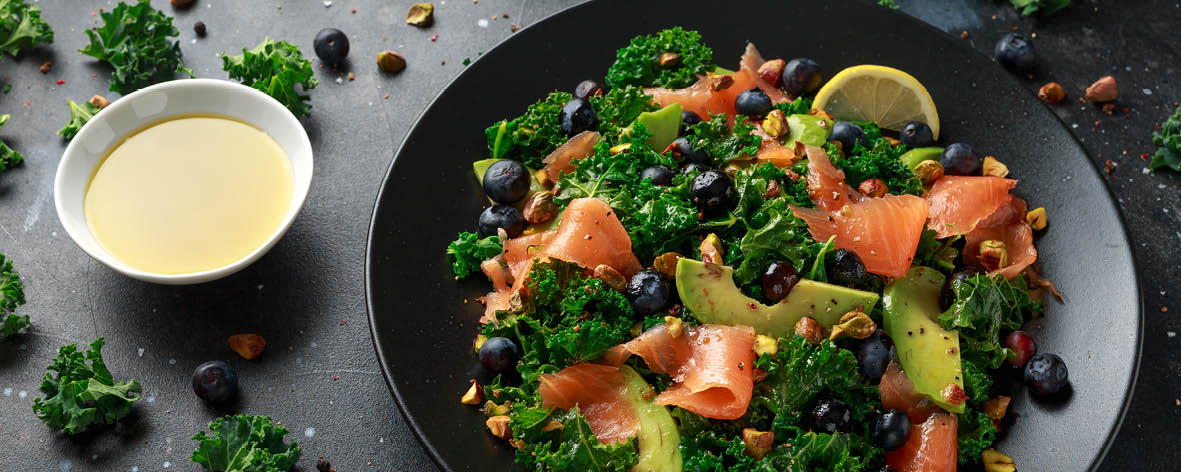Nutrient-dense foods … why they’re so important

We all know that the energy that we need to live comes from food and the type of food we eat is important to optimise our health and wellbeing, and also to maintain a healthy weight. Choosing nutrient-dense foods is arguably the most significant thing that you can do to ensure a healthy, well-balanced diet. But what are nutrient-dense foods? Get comfy and we’ll explain.
What is nutrient density?
Nutrient density is a term used to describe a food’s nutrient composition relative to the amount of energy it contains. Foods with poor nutrient density have small amounts of nutrients relative to the energy they contain, while nutrient-dense foods contain vitamins, minerals, antioxidants, complex carbohydrates, lean protein, and healthy fats. Think of it as a ratio of the nutritional value of the food compared to the kilojoules. As there is a limited amount of food that you can consume in a day, you should spend your kilojoule budget wisely by choosing nutrient-dense foods. Not all food is created equal; for example a slice of white bread may contain the same number of calories as whole grain bread, but they are nutritionally very different. Whole grain bread contains twice as much protein and fibre, four times the potassium and three times the zinc of the white bread.
What foods are nutrient-dense?
Choosing whole foods instead of processed foods is a good first step as you will eliminate added sugars, salt, additives, and empty kilojoules. These foods will also help to keep you feeling satisfied after eating, reduce your cholesterol and help to stabilise blood sugar levels.
Fruits and vegetables: Be a regular visitor to the produce section because fruit and veggies have high levels of nutrients and relatively low kilojoules per serving. Kale is a nutritional density superstar as it is loaded with vitamins A, B6, C and K1, as well as calcium, potassium, copper, magnesium and manganese and one cup of kale has only 9 calories. When it comes to fruit berries are good, with blueberries being a standout as they are packed with powerful antioxidants.
Protein: Think lean meats, seafood, eggs, nuts, legumes and beans. In addition to protein, they deliver micronutrients like iron, choline, and B vitamins. Salmon has a variety of health benefits including providing omega-3 fatty acids that are important for heart and brain health, as well as protein, vitamins and minerals. Shellfish such as oysters, scallops and mussels are high in nutrients including zinc and iron. Another great protein choice is egg yolks which are full of vitamins, minerals and powerful nutrients.
Whole grains: Choose healthy carbohydrates like brown rice, quinoa and barley which all contain fibre, vitamins, and minerals, as well as some plant-based protein. Quinoa is an excellent nutrient-dense food containing complex carbohydrates, protein, fibre, minerals and several B vitamins.
Legumes : Rich in dietary fibre and with a low glycemic index, legumes such as beans, peas, lentils, soybeans, and peanuts contain minerals, vitamin B and antioxidants.
Nuts and seeds: Although they have fat content, nuts and seeds have good nutrient density. Raw nuts contain healthy unsaturated fats while seeds like pumpkin, sesame, chia and sunflower contain fibre, healthy fats, vitamins, minerals and antioxidants.
Low-fat dairy products: Low-fat milk and yogurt can give you the calcium and vitamin D your body needs for strong bones as well as protein, potassium, phosphorus, vitamin A, choline, and selenium.
Why are nutrient-dense foods important?
Nutrient-dense foods are important for your overall health as they provide the body with the vitamins, minerals, antioxidants and essential nutrients for optimal body functioning. Consuming them helps to maintain a healthy weight, lower blood pressure, improve heart health, and protect against cancer, diabetes, and Alzheimers disease.

